 Go to A-Z Databases: eBooks to search for more eBooks.
Go to A-Z Databases: eBooks to search for more eBooks.
Want more on finding books or eBooks? Try our How to Use Books & eBooks guides.
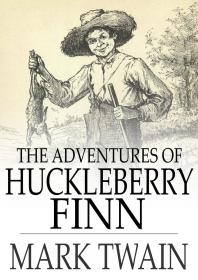 The Adventures of Huckleberry Finn
by
Mark Twain
Huckleberry Finn, Tom Sawyer's best friend, escapes down the Mississippi on a raft with the runaway slave, Jim. One of the iconic American novels, it caused a stir when published because of the vernacular used by Twain to characterize Jim and the people of the Mississippi. Twain's criticism of racial segregation and the treatment of slaves was thrown into turbulent criticisms at the turn of the century however, when he himself was accused of racist stereotyping and frequent use of the word "nigger".
The Adventures of Huckleberry Finn
by
Mark Twain
Huckleberry Finn, Tom Sawyer's best friend, escapes down the Mississippi on a raft with the runaway slave, Jim. One of the iconic American novels, it caused a stir when published because of the vernacular used by Twain to characterize Jim and the people of the Mississippi. Twain's criticism of racial segregation and the treatment of slaves was thrown into turbulent criticisms at the turn of the century however, when he himself was accused of racist stereotyping and frequent use of the word "nigger".
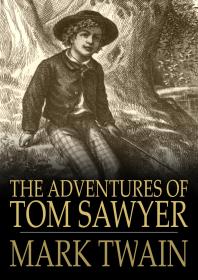 Adventures of Tom Sawyer
by
Mark Twain
The orphan Tom Sawyer, raised by his aunt, is never out of trouble for long. A mischievous, charming boy (not to mention genius at escaping from trouble), Tom's adventures involve many unwitting bystanders. From one moment to the next, the boy could change into a pirate, or ship's captain - when he's not trying to win Becky Thatcher for a sweetheart, of course. Tom is also a friend of Twain's other beloved boy-hero, Huckleberry Finn.
Adventures of Tom Sawyer
by
Mark Twain
The orphan Tom Sawyer, raised by his aunt, is never out of trouble for long. A mischievous, charming boy (not to mention genius at escaping from trouble), Tom's adventures involve many unwitting bystanders. From one moment to the next, the boy could change into a pirate, or ship's captain - when he's not trying to win Becky Thatcher for a sweetheart, of course. Tom is also a friend of Twain's other beloved boy-hero, Huckleberry Finn.
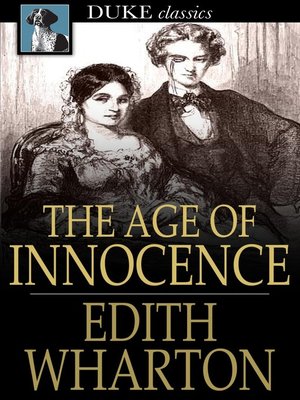 The Age of Innocence
by
Edith Wharton
The Age of Innocence is an intimate portrayal of East Coast American society in the 19th century—and the human lives that came into conflict with it. Newland Archer is heir to one of New York City's first families, and his bride-to-be is everything he ever hoped. Then his fiancee's older cousin leaves her European husband and appears in New York, where she refuses to conform to society and her family's wishes. Archer is at first angered and then intrigued by her. Their passionate relationship challenges everything he believes and ultimately suffers at the hands of society and family obligation.
The Age of Innocence
by
Edith Wharton
The Age of Innocence is an intimate portrayal of East Coast American society in the 19th century—and the human lives that came into conflict with it. Newland Archer is heir to one of New York City's first families, and his bride-to-be is everything he ever hoped. Then his fiancee's older cousin leaves her European husband and appears in New York, where she refuses to conform to society and her family's wishes. Archer is at first angered and then intrigued by her. Their passionate relationship challenges everything he believes and ultimately suffers at the hands of society and family obligation.
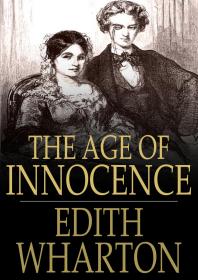 The Age of Innocence
by
Edith Wharton
he Age of Innocence is an intimate portrayal of East Coast American society in the 19th century--and the human lives that came into conflict with it. Newland Archer is heir to one of New York City's first families, and his bride-to-be is everything he ever hoped. Then his fiancee's older cousin leaves her European husband and appears in New York, where she refuses to conform to society and her family's wishes. Archer is at first angered and then intrigued by her. Their passionate relationship challenges everything he believes and ultimately suffers at the hands of society and family obligation. The novel won the Pulitzer Prize; Wharton was the first woman to win it.
The Age of Innocence
by
Edith Wharton
he Age of Innocence is an intimate portrayal of East Coast American society in the 19th century--and the human lives that came into conflict with it. Newland Archer is heir to one of New York City's first families, and his bride-to-be is everything he ever hoped. Then his fiancee's older cousin leaves her European husband and appears in New York, where she refuses to conform to society and her family's wishes. Archer is at first angered and then intrigued by her. Their passionate relationship challenges everything he believes and ultimately suffers at the hands of society and family obligation. The novel won the Pulitzer Prize; Wharton was the first woman to win it.
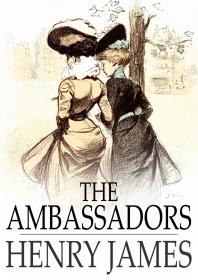 The Ambassadors
by
Henry James
One of Henry James' greatest novels, The Ambassadors is a dark comedy from 1903. Lewis Lambert Strether travels to Europe to find his widowed fiancée's son, planning to bring him back to the family business, but once there Strether meets with unexpected complications. Taken by perceived contrasts between European and American culture, The Ambassadors plays out a theme of liberation, from a stifled emotional life to a more abundant and gracious existence.
The Ambassadors
by
Henry James
One of Henry James' greatest novels, The Ambassadors is a dark comedy from 1903. Lewis Lambert Strether travels to Europe to find his widowed fiancée's son, planning to bring him back to the family business, but once there Strether meets with unexpected complications. Taken by perceived contrasts between European and American culture, The Ambassadors plays out a theme of liberation, from a stifled emotional life to a more abundant and gracious existence.
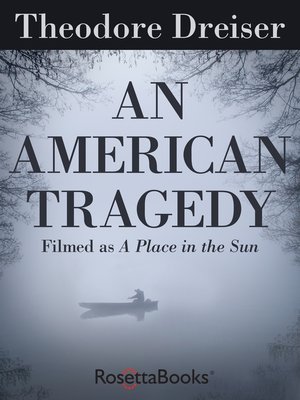 An American Tragedy
by
Theodore Dreiser
Theodore Dreiser's An American Tragedy (1925) is nothing less than what the title holds it to be; it is the story of a weak-willed young man who is both villain and victim (the victim of a valueless, materialistic society) and someone who ultimately destroys himself. Dreiser modeled the story of Clyde Griffiths on a real-life murder that took place in 1906; a young social climber of considerable charm murdered his pregnant girlfriend to get her out of the way so that he could instead play to the affections of a rich girl who had begun to notice him.
An American Tragedy
by
Theodore Dreiser
Theodore Dreiser's An American Tragedy (1925) is nothing less than what the title holds it to be; it is the story of a weak-willed young man who is both villain and victim (the victim of a valueless, materialistic society) and someone who ultimately destroys himself. Dreiser modeled the story of Clyde Griffiths on a real-life murder that took place in 1906; a young social climber of considerable charm murdered his pregnant girlfriend to get her out of the way so that he could instead play to the affections of a rich girl who had begun to notice him.
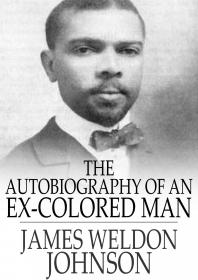 The Autobiography of an Ex-Colored Man
by
James Weldon Johnson
James Weldon Johnson's The Autobiography of an Ex-Colored Man is the fictional account of the life of a young American man in the late nineteenth and early twentieth century. With his bi-racial heritage, the Ex-Colored Man is faced with the choice of embracing his black culture and its ragtime music, or passing as a white man and living a mediocre middle-class existence. While not actually an autobiography, Johnson based the book on his own life and the lives of people he knew.
The Autobiography of an Ex-Colored Man
by
James Weldon Johnson
James Weldon Johnson's The Autobiography of an Ex-Colored Man is the fictional account of the life of a young American man in the late nineteenth and early twentieth century. With his bi-racial heritage, the Ex-Colored Man is faced with the choice of embracing his black culture and its ragtime music, or passing as a white man and living a mediocre middle-class existence. While not actually an autobiography, Johnson based the book on his own life and the lives of people he knew.
 The Awakening and Selected Short Stories
by
Kate Chopin
The Awakening (1899) appears in this collection of short stories. Upon publication of the story Chopin's writing was highly praised, but the public was outraged by the content and only one edition was printed. The Awakening was rediscovered in the 1960s, when Chopin was praised for raising feminist questions. The story follows the personal discovery of a married woman of the things she did not even realize she was missing.
The Awakening and Selected Short Stories
by
Kate Chopin
The Awakening (1899) appears in this collection of short stories. Upon publication of the story Chopin's writing was highly praised, but the public was outraged by the content and only one edition was printed. The Awakening was rediscovered in the 1960s, when Chopin was praised for raising feminist questions. The story follows the personal discovery of a married woman of the things she did not even realize she was missing.
 The Call of the Wild
by
Jack London
The Call of the Wild is Jack London's most popular book and is considered by many to be his best. Telling the story of Buck, a domesticated dog whose wild instincts begin to kick-in while serving as a sled dog in the treacherous Yukon. The novel's tone is often dark, and despite being considered juvenile literature by some, it portrays much violence and cruelty. The Call of the Wild was followed in 1906 by White Fang with its mirroring plot of a wild wolf becoming domesticated by a miner.
The Call of the Wild
by
Jack London
The Call of the Wild is Jack London's most popular book and is considered by many to be his best. Telling the story of Buck, a domesticated dog whose wild instincts begin to kick-in while serving as a sled dog in the treacherous Yukon. The novel's tone is often dark, and despite being considered juvenile literature by some, it portrays much violence and cruelty. The Call of the Wild was followed in 1906 by White Fang with its mirroring plot of a wild wolf becoming domesticated by a miner.
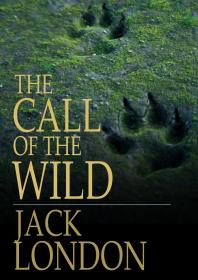 The Call of the Wild
by
Jack London
The Call of the Wild is Jack London's most popular book and is considered by many to be his best. Telling the story of Buck, a domesticated dog whose wild instincts begin to kick-in while serving as a sled dog in the treacherous Yukon. The novel's tone is often dark, and despite being considered juvenile literature by some, it portrays much violence and cruelty. The Call of the Wild was followed in 1906 by White Fang with its mirroring plot of a wild wolf becoming domesticated by a miner.
The Call of the Wild
by
Jack London
The Call of the Wild is Jack London's most popular book and is considered by many to be his best. Telling the story of Buck, a domesticated dog whose wild instincts begin to kick-in while serving as a sled dog in the treacherous Yukon. The novel's tone is often dark, and despite being considered juvenile literature by some, it portrays much violence and cruelty. The Call of the Wild was followed in 1906 by White Fang with its mirroring plot of a wild wolf becoming domesticated by a miner.
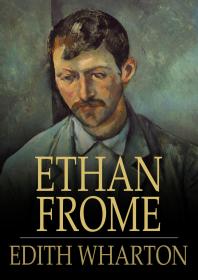 Ethan Frome
by
Edith Wharton
In the fictional New England town of Starkfield, an unnamed narrator is forced to stay at the home of Ethan Frome during a winter storm. He relates his encounter with Frome, "the most striking figure in Starkfield, he was but the ruin of a man, with a careless powerful look - in spite of a lameness checking each step like the jerk of a chain". When the beautiful cousin of Frome's bitter wife comes to help with housekeeping, Frome's attraction to her does not go unnoticed.
Edith Wharton is a Pulitzer-Prize-winning author.
Ethan Frome
by
Edith Wharton
In the fictional New England town of Starkfield, an unnamed narrator is forced to stay at the home of Ethan Frome during a winter storm. He relates his encounter with Frome, "the most striking figure in Starkfield, he was but the ruin of a man, with a careless powerful look - in spite of a lameness checking each step like the jerk of a chain". When the beautiful cousin of Frome's bitter wife comes to help with housekeeping, Frome's attraction to her does not go unnoticed.
Edith Wharton is a Pulitzer-Prize-winning author.
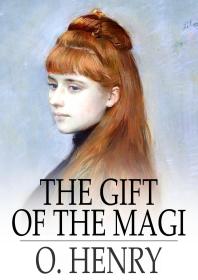 The Gift of the Magi
by
O. Henry
The Gift of the Magi is a treasured short story written by O. Henry. A young and very much in love couple can barely afford their one-room apartment, let alone the extra expense of getting Christmas presents for one another. But each is determined to show their love for the other in this traditional time of giving; each sells a thing they hold most dear in order to afford a present, with poignant and touching results that capture their love for one another.
The Gift of the Magi
by
O. Henry
The Gift of the Magi is a treasured short story written by O. Henry. A young and very much in love couple can barely afford their one-room apartment, let alone the extra expense of getting Christmas presents for one another. But each is determined to show their love for the other in this traditional time of giving; each sells a thing they hold most dear in order to afford a present, with poignant and touching results that capture their love for one another.
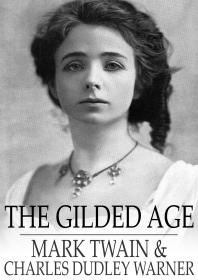 The Gilded Age
by
Mark Twain; Charles Dudley Warner
The only book that Mark Twain ever wrote in collaboration with another author, The Gilded Age is a novel that viciously and hilariously satirizes the greed, materialism, and corruption that characterized much of upper-class America in the nineteenth century. The title term -- inspired by a line in Shakespeare's King John -- has become synonymous with the excess of the era.
The Gilded Age
by
Mark Twain; Charles Dudley Warner
The only book that Mark Twain ever wrote in collaboration with another author, The Gilded Age is a novel that viciously and hilariously satirizes the greed, materialism, and corruption that characterized much of upper-class America in the nineteenth century. The title term -- inspired by a line in Shakespeare's King John -- has become synonymous with the excess of the era.
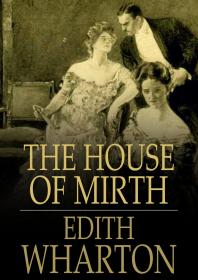 The House of Mirth
by
Edith Wharton
The House of Mirth is an uncompromising depiction of 19th-century New York society. Lily Bart is a society lady who is unwilling to marry for love, but equally unwilling to marry as society dictates. She sabotages every advantageous opportunity she receives, until her society friends begin to hasten her downfall for their own ends.
The House of Mirth
by
Edith Wharton
The House of Mirth is an uncompromising depiction of 19th-century New York society. Lily Bart is a society lady who is unwilling to marry for love, but equally unwilling to marry as society dictates. She sabotages every advantageous opportunity she receives, until her society friends begin to hasten her downfall for their own ends.
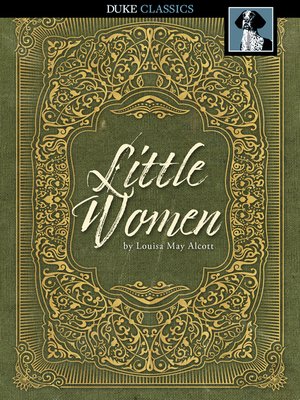 Little Women
by
Louisa May Alcott
Louisa May Alcott wrote Little Women in two parts, each resoundingly popular and receiving critical acclaim. The novel follows the lives of the four March sisters, Meg, Jo, Beth and Amy, from childhood into maturity. The journey is not an easy one, and each is humbled and ultimately uplifted by her encounters with love, society and death. The work is based loosely on Alcott's experiences growing up with three sisters.
Little Women
by
Louisa May Alcott
Louisa May Alcott wrote Little Women in two parts, each resoundingly popular and receiving critical acclaim. The novel follows the lives of the four March sisters, Meg, Jo, Beth and Amy, from childhood into maturity. The journey is not an easy one, and each is humbled and ultimately uplifted by her encounters with love, society and death. The work is based loosely on Alcott's experiences growing up with three sisters.
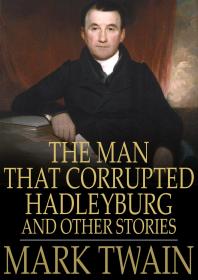 The Man That Corrupted Hadleyburg: And Other Stories
by
Mark Twain
Curl up with a collection of stories from the pen of one of the masters of American fiction and humor writing. This carefully curated volume of Twain's short stories represents a cross-section of some the author's finest work, including the title piece, which follows a stranger's plot to corrupt a purportedly honest community.
The Man That Corrupted Hadleyburg: And Other Stories
by
Mark Twain
Curl up with a collection of stories from the pen of one of the masters of American fiction and humor writing. This carefully curated volume of Twain's short stories represents a cross-section of some the author's finest work, including the title piece, which follows a stranger's plot to corrupt a purportedly honest community.
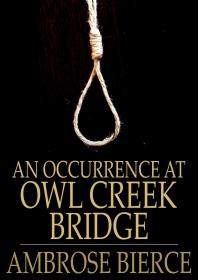 An Occurrence at Owl Creek Bridge
by
Ambrose Bierce
An Occurrence at Owl Creek Bridge opens with the story's hero, Peyton Farquhar, hanging bound from a bridge, awaiting hanging. Farquhar is a Confederate sympathizer in the American Civil War and has been brought to this end by a Union spy. The novel was unique in its time for its jumbled chronology and is also famous for its surprising conclusion.
An Occurrence at Owl Creek Bridge
by
Ambrose Bierce
An Occurrence at Owl Creek Bridge opens with the story's hero, Peyton Farquhar, hanging bound from a bridge, awaiting hanging. Farquhar is a Confederate sympathizer in the American Civil War and has been brought to this end by a Union spy. The novel was unique in its time for its jumbled chronology and is also famous for its surprising conclusion.
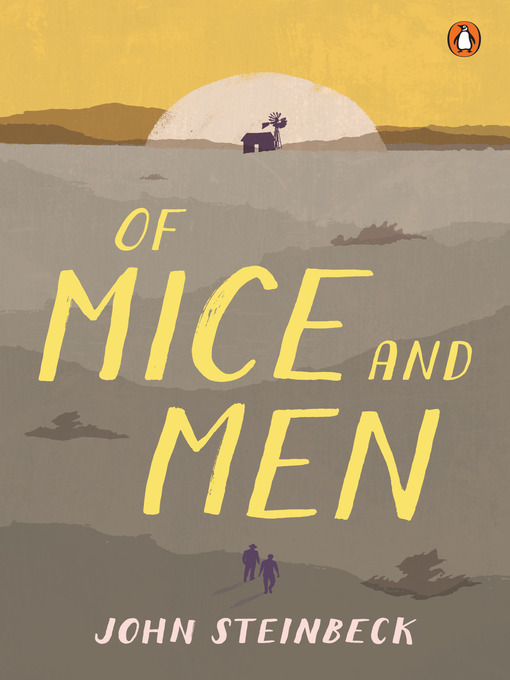 Of Mice and Men
by
John Steinbeck
A controversial tale of friendship and tragedy during the Great Depression
Over seventy-five years since its first publication, Steinbeck's tale of commitment, loneliness, hope, and loss remains one of America's most widely read and taught novels. An unlikely pair, George and Lennie, two migrant workers in California during the Great Depression, grasp for their American Dream. They hustle work when they can, living a hand-to-mouth existence. For George and Lennie have a plan: to own an acre of land and a shack they can call their own. When they land jobs on a ranch in the Salinas Valley, the fulfillment of their dream seems to be within their grasp. But even George cannot guard Lennie from the provocations, nor predict the consequences of Lennie's unswerving obedience to the things George taught him.
Of Mice and Men
by
John Steinbeck
A controversial tale of friendship and tragedy during the Great Depression
Over seventy-five years since its first publication, Steinbeck's tale of commitment, loneliness, hope, and loss remains one of America's most widely read and taught novels. An unlikely pair, George and Lennie, two migrant workers in California during the Great Depression, grasp for their American Dream. They hustle work when they can, living a hand-to-mouth existence. For George and Lennie have a plan: to own an acre of land and a shack they can call their own. When they land jobs on a ranch in the Salinas Valley, the fulfillment of their dream seems to be within their grasp. But even George cannot guard Lennie from the provocations, nor predict the consequences of Lennie's unswerving obedience to the things George taught him.
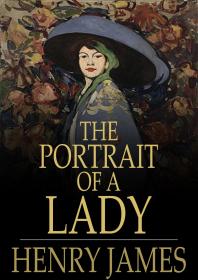 The Portrait of a Lady
by
Henry James
The Portrait of a Lady is perhaps Henry James' greatest novel. It tells the story of Isabel Archer, a young American heiress who "affronts her destiny". Dealing with one of James' recurrent themes, the American in Europe, and the differences between the two cultures, The Portrait of a Lady is a tale of the conspiracy to separate Isabel from her fortune and the value of autonomy and accountability.
The Portrait of a Lady
by
Henry James
The Portrait of a Lady is perhaps Henry James' greatest novel. It tells the story of Isabel Archer, a young American heiress who "affronts her destiny". Dealing with one of James' recurrent themes, the American in Europe, and the differences between the two cultures, The Portrait of a Lady is a tale of the conspiracy to separate Isabel from her fortune and the value of autonomy and accountability.
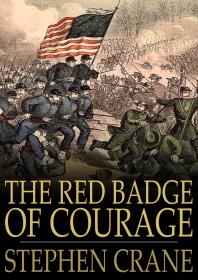 The Red Badge of Courage
by
Stephen Crane
Hailed as one of American literature's most influential works, The Red Badge of Courage has a young recruit facing the trials and cruelties of war. Stephen Crane's 1895 novel is set in the American Civil War. Private Henry Fleming flees from battle and his battalion, considering all lost. Stumbling upon injured soldiers, he feels the shame of deserting and of not possessing the "red badge of courage", the wounds of war. But later when Henry rejoins his regiment and is ordered into a hopeless battle, he finds a chance to finally prove his courage as a man.
The Red Badge of Courage
by
Stephen Crane
Hailed as one of American literature's most influential works, The Red Badge of Courage has a young recruit facing the trials and cruelties of war. Stephen Crane's 1895 novel is set in the American Civil War. Private Henry Fleming flees from battle and his battalion, considering all lost. Stumbling upon injured soldiers, he feels the shame of deserting and of not possessing the "red badge of courage", the wounds of war. But later when Henry rejoins his regiment and is ordered into a hopeless battle, he finds a chance to finally prove his courage as a man.
 The Red Badge of Courage
by
Stephen Crane
Hailed as one of American literature's most influential works, The Red Badge of Courage has a young recruit facing the trials and cruelties of war. Stephen Crane's 1895 novel is set in the American Civil War. Private Henry Fleming flees from battle and his battalion, considering all lost. Stumbling upon injured soldiers, he feels the shame of deserting and of not possessing the "red badge of courage", the wounds of war. But later when Henry rejoins his regiment and is ordered into a hopeless battle, he finds a chance to finally prove his courage as a man.
The Red Badge of Courage
by
Stephen Crane
Hailed as one of American literature's most influential works, The Red Badge of Courage has a young recruit facing the trials and cruelties of war. Stephen Crane's 1895 novel is set in the American Civil War. Private Henry Fleming flees from battle and his battalion, considering all lost. Stumbling upon injured soldiers, he feels the shame of deserting and of not possessing the "red badge of courage", the wounds of war. But later when Henry rejoins his regiment and is ordered into a hopeless battle, he finds a chance to finally prove his courage as a man.
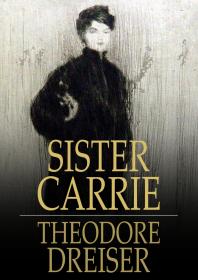 Sister Carrie
by
Theodore Dreiser
A country girl moves to the big city and lives her own version of the American Dream by becoming mistress to the men of her choice and so working her way to fame as an actress. Sinclair Lewis said of the novel in 1930, "Dreiser's great first novel, Sister Carrie, which he dared to publish thirty long years ago and which I read twenty-five years ago, came to housebound and airless America like a great free Western wind, and to our stuffy domesticity gave us the first fresh air since Mark Twain and Whitman."
Sister Carrie
by
Theodore Dreiser
A country girl moves to the big city and lives her own version of the American Dream by becoming mistress to the men of her choice and so working her way to fame as an actress. Sinclair Lewis said of the novel in 1930, "Dreiser's great first novel, Sister Carrie, which he dared to publish thirty long years ago and which I read twenty-five years ago, came to housebound and airless America like a great free Western wind, and to our stuffy domesticity gave us the first fresh air since Mark Twain and Whitman."
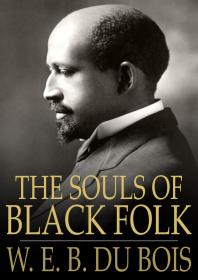 The Souls of Black Folk
by
W. E. B. Du Bois
The Souls of Black Folk is the seminal work by Du Bois on race in late 19th-century North America. The way we think about and examine race today stems from his ideas. He spoke of the "double-consciousness, this sense of always looking at one's self through the eyes of others," and of the progress and obstacles to progress of the black American.
The Souls of Black Folk
by
W. E. B. Du Bois
The Souls of Black Folk is the seminal work by Du Bois on race in late 19th-century North America. The way we think about and examine race today stems from his ideas. He spoke of the "double-consciousness, this sense of always looking at one's self through the eyes of others," and of the progress and obstacles to progress of the black American.
 The Turn of the Screw
by
Henry James
The Turn of the Screw is s ghostly Gothic tale by Henry James. A masterpiece in ambivalence and the uncanny, The Turn of the Screw tells the story of a young woman who is hired as governess to two seemingly innocent children in an isolated country house. As the tale progresses she begins to see the ghost of her dead predecessor. Or does she? The story is so ambivalent and eerie, such a psychological thriller, that few can agree on exactly what takes place. James masters "the strange and sinister embroidered on the very type of the normal and easy" in this chilling Victorian classic.
The Turn of the Screw
by
Henry James
The Turn of the Screw is s ghostly Gothic tale by Henry James. A masterpiece in ambivalence and the uncanny, The Turn of the Screw tells the story of a young woman who is hired as governess to two seemingly innocent children in an isolated country house. As the tale progresses she begins to see the ghost of her dead predecessor. Or does she? The story is so ambivalent and eerie, such a psychological thriller, that few can agree on exactly what takes place. James masters "the strange and sinister embroidered on the very type of the normal and easy" in this chilling Victorian classic.
 Up from Slavery
by
Booker T. Washington
Delve into the turbulent roots of race relations in the United States with this inspirational account from Booker T. Washington, a one-time slave who became an important advocate for African-American education and founded several well-known institutions of higher learning, including the Tuskegee Institute in Alabama. Up From Slavery details Washington's life and outlines his sometimes-controversial views on education, social justice, and racial equality
Up from Slavery
by
Booker T. Washington
Delve into the turbulent roots of race relations in the United States with this inspirational account from Booker T. Washington, a one-time slave who became an important advocate for African-American education and founded several well-known institutions of higher learning, including the Tuskegee Institute in Alabama. Up From Slavery details Washington's life and outlines his sometimes-controversial views on education, social justice, and racial equality
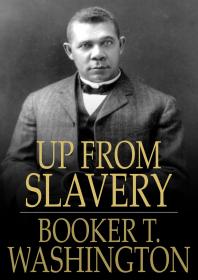 Up from Slavery
by
Booker T. Washington
Delve into the turbulent roots of race relations in the United States with this inspirational account from Booker T. Washington, a one-time slave who became an important advocate for African-American education and founded several well-known institutions of higher learning, including the Tuskegee Institute in Alabama. Up From Slavery details Washington's life and outlines his sometimes-controversial views on education, social justice, and racial equality.
Up from Slavery
by
Booker T. Washington
Delve into the turbulent roots of race relations in the United States with this inspirational account from Booker T. Washington, a one-time slave who became an important advocate for African-American education and founded several well-known institutions of higher learning, including the Tuskegee Institute in Alabama. Up From Slavery details Washington's life and outlines his sometimes-controversial views on education, social justice, and racial equality.
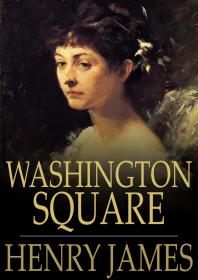 Washington Square
by
Henry James
Washington Square by Henry James is the story of the gentle, dull Catherine Sloper who falls for the ambivalent Morris Townsend, who her father believes is a fortune hunter. When Catherine's father refuses to countenance the marriage and threatens to disinherit her if she proceeds, the dutiful Catherine is unable to choose between her father and the man of her dreams. Often compared to Austen for the precision and elegance of the prose Washington Square is a beautiful tragicomic story that is one of James' bestloved novels.
Washington Square
by
Henry James
Washington Square by Henry James is the story of the gentle, dull Catherine Sloper who falls for the ambivalent Morris Townsend, who her father believes is a fortune hunter. When Catherine's father refuses to countenance the marriage and threatens to disinherit her if she proceeds, the dutiful Catherine is unable to choose between her father and the man of her dreams. Often compared to Austen for the precision and elegance of the prose Washington Square is a beautiful tragicomic story that is one of James' bestloved novels.
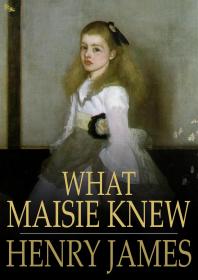 What Maisie Knew
by
Henry James
Maisie's parents go through an acrimonious divorce when she is very young, and the court decrees that she will travel between them, spending time with each. They do not hesitate to use her in their war against each other, and she is neglected and abandoned by them as they each remarry and then take further lovers. The story follows her to maturity, when she is able to decide her own fate.
What Maisie Knew
by
Henry James
Maisie's parents go through an acrimonious divorce when she is very young, and the court decrees that she will travel between them, spending time with each. They do not hesitate to use her in their war against each other, and she is neglected and abandoned by them as they each remarry and then take further lovers. The story follows her to maturity, when she is able to decide her own fate.
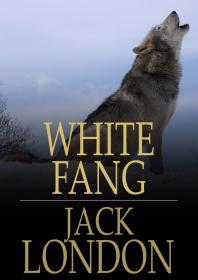 White Fang
by
Jack London
Jack London's White Fang is the story of a wolf-dog's journey from wildness into becoming civilized by humanity. Set in Canada's Yukon, a lot of the novel is told from an animal point of view, exploring how animals might see us, and see the world around them. White Fang's mirror novel is The Call of the Wild, London's best-known work, in which a civilized dog slowly becomes a wild animal.
White Fang
by
Jack London
Jack London's White Fang is the story of a wolf-dog's journey from wildness into becoming civilized by humanity. Set in Canada's Yukon, a lot of the novel is told from an animal point of view, exploring how animals might see us, and see the world around them. White Fang's mirror novel is The Call of the Wild, London's best-known work, in which a civilized dog slowly becomes a wild animal.
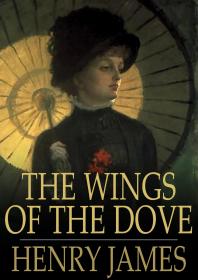 The Wings of the Dove
by
Henry James
Young Londoners Kate and Merton are engaged, but have no money to marry on. When the wealthy but terminally ill American heiress Milly arrives in London, Kate schemes for a way to inherit her fortune. But when Kate achieves all she had hoped for, she finds that the money and the gentle, beautiful Milly have changed everything.
The Wings of the Dove
by
Henry James
Young Londoners Kate and Merton are engaged, but have no money to marry on. When the wealthy but terminally ill American heiress Milly arrives in London, Kate schemes for a way to inherit her fortune. But when Kate achieves all she had hoped for, she finds that the money and the gentle, beautiful Milly have changed everything.
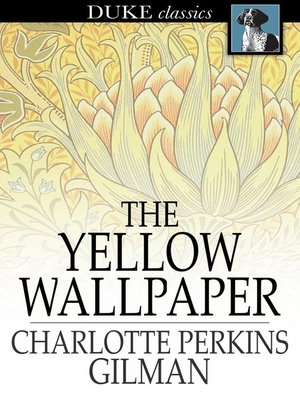 The Yellow Wallpaper
by
Charlotte Perkins Gilman
Charlotte Perkins Gilman's 1892 short story, The Yellow Wallpaper is a valuable piece of American feminist literature that reveals attitudes toward the psychological health of women in the nineteenth century. Diagnosed with "temporary nervous depression - a slight hysterical tendency" by her physician husband, a woman is confined to an upstairs bedroom. Descending into psychosis at the complete lack of stimulation, she starts obsessing over the room's yellow wallpaper: "It is the strangest yellow, that wall-paper! It makes me think of all the yellow things I ever saw - not beautiful ones like buttercups, but old foul, bad yellow things. But there is something else about that paper - the smell! ... The only thing I can think of that it is like is the color of the paper! A yellow smell."
The Yellow Wallpaper
by
Charlotte Perkins Gilman
Charlotte Perkins Gilman's 1892 short story, The Yellow Wallpaper is a valuable piece of American feminist literature that reveals attitudes toward the psychological health of women in the nineteenth century. Diagnosed with "temporary nervous depression - a slight hysterical tendency" by her physician husband, a woman is confined to an upstairs bedroom. Descending into psychosis at the complete lack of stimulation, she starts obsessing over the room's yellow wallpaper: "It is the strangest yellow, that wall-paper! It makes me think of all the yellow things I ever saw - not beautiful ones like buttercups, but old foul, bad yellow things. But there is something else about that paper - the smell! ... The only thing I can think of that it is like is the color of the paper! A yellow smell."
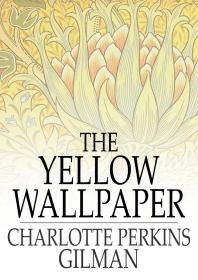 Yellow Wallpaper
by
Charlotte Perkins Gilman
Charlotte Perkins Gilman's 1892 short story, The Yellow Wallpaper is a valuable piece of American feminist literature that reveals attitudes toward the psychological health of women in the nineteenth century. Diagnosed with "temporary nervous depression - a slight hysterical tendency" by her physician husband, a woman is confined to an upstairs bedroom. Descending into psychosis at the complete lack of stimulation, she starts obsessing over the room's yellow wallpaper: "It is the strangest yellow, that wall-paper! It makes me think of all the yellow things I ever saw - not beautiful ones like buttercups, but old foul, bad yellow things. But there is something else about that paper - the smell! ... The only thing I can think of that it is like is the color of the paper! A yellow smell."
Yellow Wallpaper
by
Charlotte Perkins Gilman
Charlotte Perkins Gilman's 1892 short story, The Yellow Wallpaper is a valuable piece of American feminist literature that reveals attitudes toward the psychological health of women in the nineteenth century. Diagnosed with "temporary nervous depression - a slight hysterical tendency" by her physician husband, a woman is confined to an upstairs bedroom. Descending into psychosis at the complete lack of stimulation, she starts obsessing over the room's yellow wallpaper: "It is the strangest yellow, that wall-paper! It makes me think of all the yellow things I ever saw - not beautiful ones like buttercups, but old foul, bad yellow things. But there is something else about that paper - the smell! ... The only thing I can think of that it is like is the color of the paper! A yellow smell."

Search OneSearch for books, eBooks and media items in COM Library.
© 2026 COM Library
1200 Amburn Road, Texas City, Texas 77591
409-933-8448 . FAX 409-933-8030
This work is licensed under a Creative Commons Attribution-NonCommercial 4.0 International License